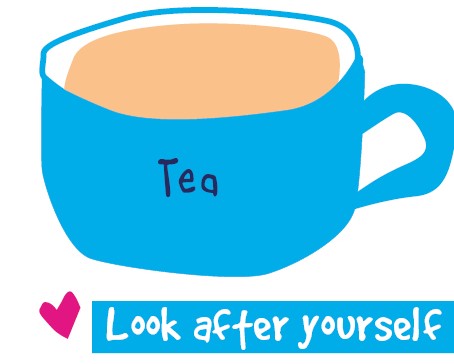Every family makes changes to cope with the stress of everyday life. If your child has additional support needs, these challenges can be even more pronounced.
No two children are the same and children with Autism Spectrum Disorder (ASD) and Additional Support for Learning (ASL) are no different. You know your child best. You know what they find challenging, what they struggle with the most, what they enjoy and what makes them smile. You will have developed your own ways of helping them with their relationships, to support them to express themselves and to communicate their feelings.
For some children the stress of being ready for school on time, travelling there, sitting in the classroom and being with other children causes lots of anxiety. You might have had a happier child at home. Or you may notice your child’s sensory needs increasing around different or new anxieties. There is no right way for your child to respond to the challenges they’re facing but if you can stay calm, it will help them know they are safe. You can also call support line to talk about what might help you and your family.
The most important thing you can do for your child is to continue to provide the love, care and security they need.
Here are some of the things families tell us have helped their child with ASD and ASL needs:
For children with ASD and ASL needs, routine can be the foundation of their (and your) lives.
Finding a routine can help get back some consistency. It can be challenging, so be kind to yourself if it doesn’t work right away. Be open to changing the routine until it works and involve your child in the decisions as much as you can.
The wellbeing of every member of your family is important. It can be difficult to juggle the needs of everyone in your home – you might have other children without ASD or ASL needs, a partner or other adults in the house. You also need to find time for yourself. Have conversations as a family. Be honest about how everyone feels, what’s working and what people would like to be better.
Communication is key. Try to help brothers or sisters understand what things feel like for their sibling and why they behave the way they do. Let them know it’s OK to find it difficult.
It can be helpful to get outside in the fresh air, in your garden, on a walk or at your local park.
Sometimes people on the autism spectrum need quiet, away from other people. If your child is happy to you could try going out at different times of day, to find out when it’s quietest.
Some families have told us that their child is anxious about spending time outside. Try gentle encouragement and remember Parentline can support you with advice too.
Children have questions and a desire to understand. Try to answer them as truthfully and simply as you can. Your child (or their siblings) will want to know why their world looks and feels like it does.
Children with ASD will often take your words literally and like things to be in black and white. Try to think of simple, clear answers, rather than talking about what might happen. Your child may have questions for you that you don’t have the answer to. Just be honest and tell them you don’t know.

Supporting a child with ASD or ASL needs can feel like a lonely place. You might be trying not to share your own worries and anxieties with your child, but you should make sure you have someone else to talk to. It can be helpful to set up regular calls with a friend or family member, to check in with each other and talk about how you’re coping.
You can also talk to us over the phone and through webchat seven days a week to give you the space and time you need to think things through.

